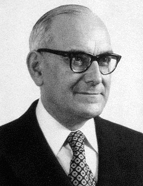

Because of his work in the areas of History and Law, Marcelo Caetano was highly respected at universities in Brazil. In addition to being a professor at Gama Filho University, where he lectured as chair of History of Philosophical and Political Ideas in Portugal, he travelled throughout Brazil presenting at research conferences. He was a member of the Brazilian Historical and Geographical Institute and the Brazilian Academy of Letters. Some notable lectures on history and law include: "Carlos Malheiro Dias, Historiador" (Carlos Malheiro Dias, Historian, 1975), "Alfrânio Peixoto e a História de Portugal" (Alfrânio Peixoto and the History of Portugal, 1976), "Alexandre Herculano e a História de Portugal" (Alexandre Herculano and the History of Portugal, 1977), "O município na História do Direito Brasileiro" (Municipalities in the History of Brazilian Law, 1978) (Marcelo Caetano no exílio…, 2006). In his lecture on Alexandre Herculano, Marcelo Caetano is ambiguous, presenting Herculano as worthy of praise, but also severely criticising him, albeit personally: "Gentlemen: it is the great admiration I have for the historical work of Alexandre Herculano that leads me to deplore the negative facets of his personality" (Marcelo Caetano no exílio, Estudos…, p.193). He returned to writing textbooks and his study of constitutionalism, already covering the Constitution of 1976, in Constituições Portuguesas (4th edition), which was updated to include analysis of the 1976 Constitution in 1978. He resumed historical research on Portuguese law, with the final product published posthumously, the first and only volume of History of Portuguese Law, Sources – Public Law, 1140-1495, commonly viewed as a new interpretation of Lições de História do Direito Português, from 1941 to 1961. Nevertheless, it was widely recognised his magnum opus, though it is now outdated in some respects. Creating it was a difficult task that required much of the author. The lack of interlocutors with whom he could discuss problems, illness and a lack of new reference works on the subject all contributed to the difficulty of his final work, as witnessed in the letters exchanged with Joaquim Verissimo Serrão and Maria Helena Prieto.
However, it was also in Brazil, at the conference on Alfrânio Peixoto, that Marcelo Caetano reaffirmed his vision of the study of history: "We are increasingly aware of the intimate solidarity of all aspects and manifestations of the life of a given society at a certain time. Political history is incomprehensible without knowledge of institutions, which is further connected to knowledge of Law. In all of this, social structure and economic dynamics are present, the political and philosophical ideas expressed in literature hang over the whole, are manifested in art, rooted in habits and customs, entwined with religion ... " (Ibid, p. 178).
